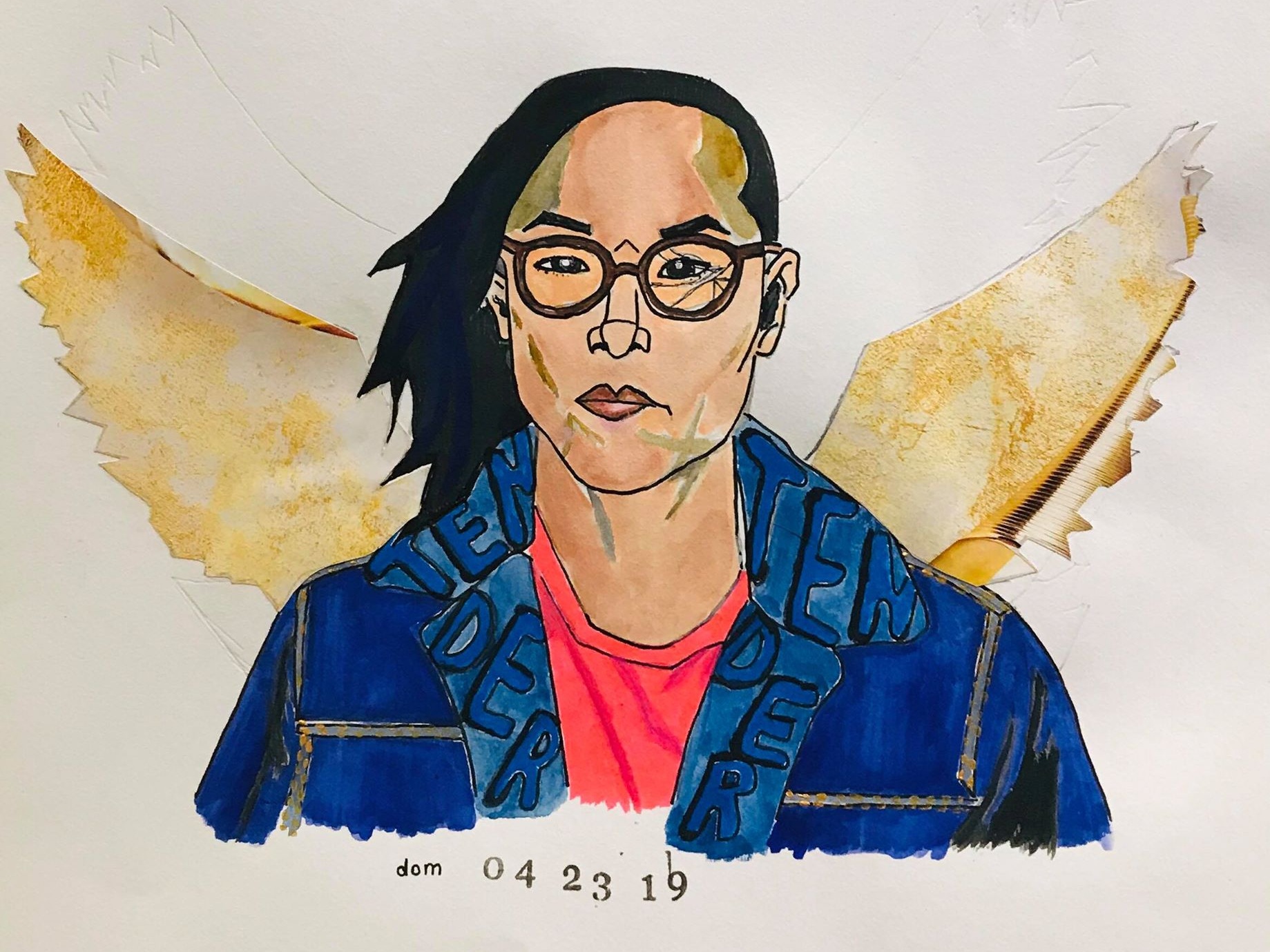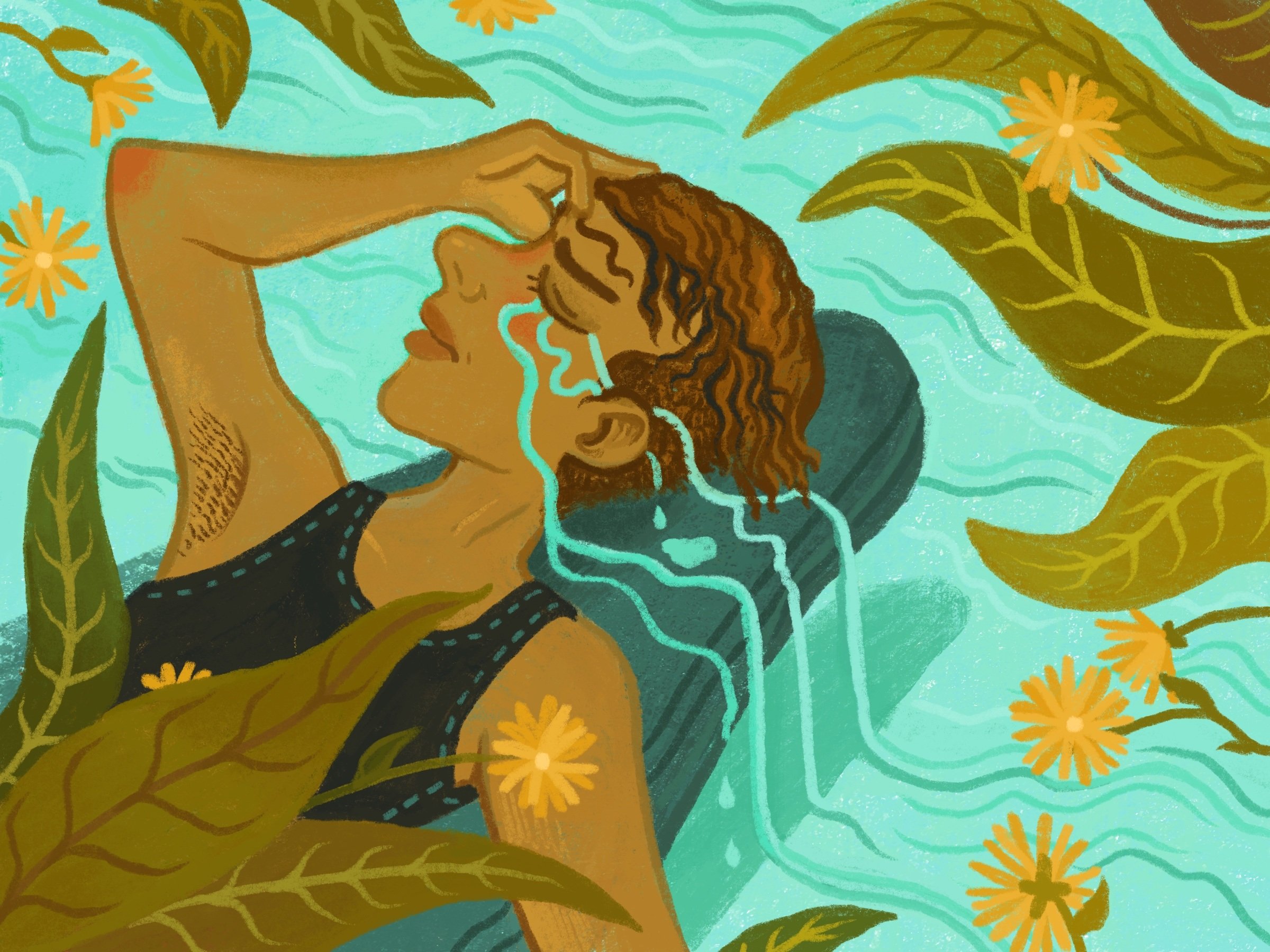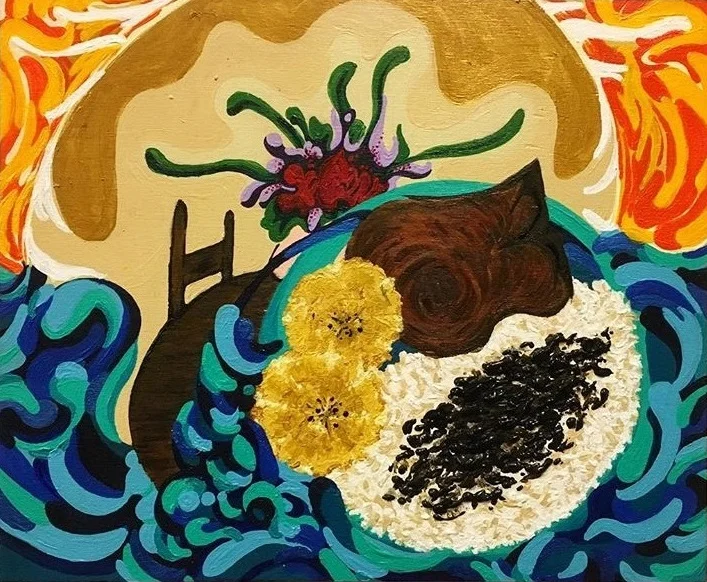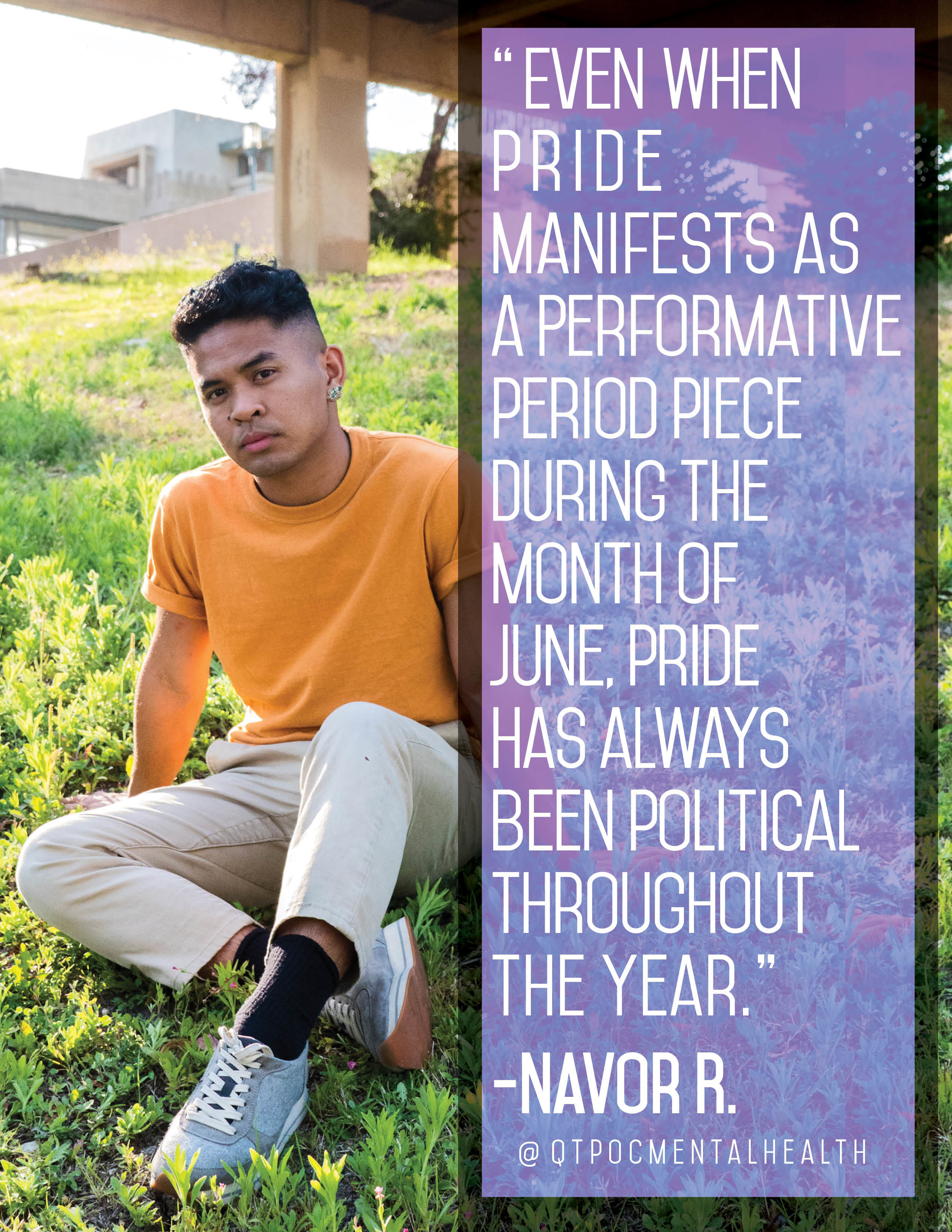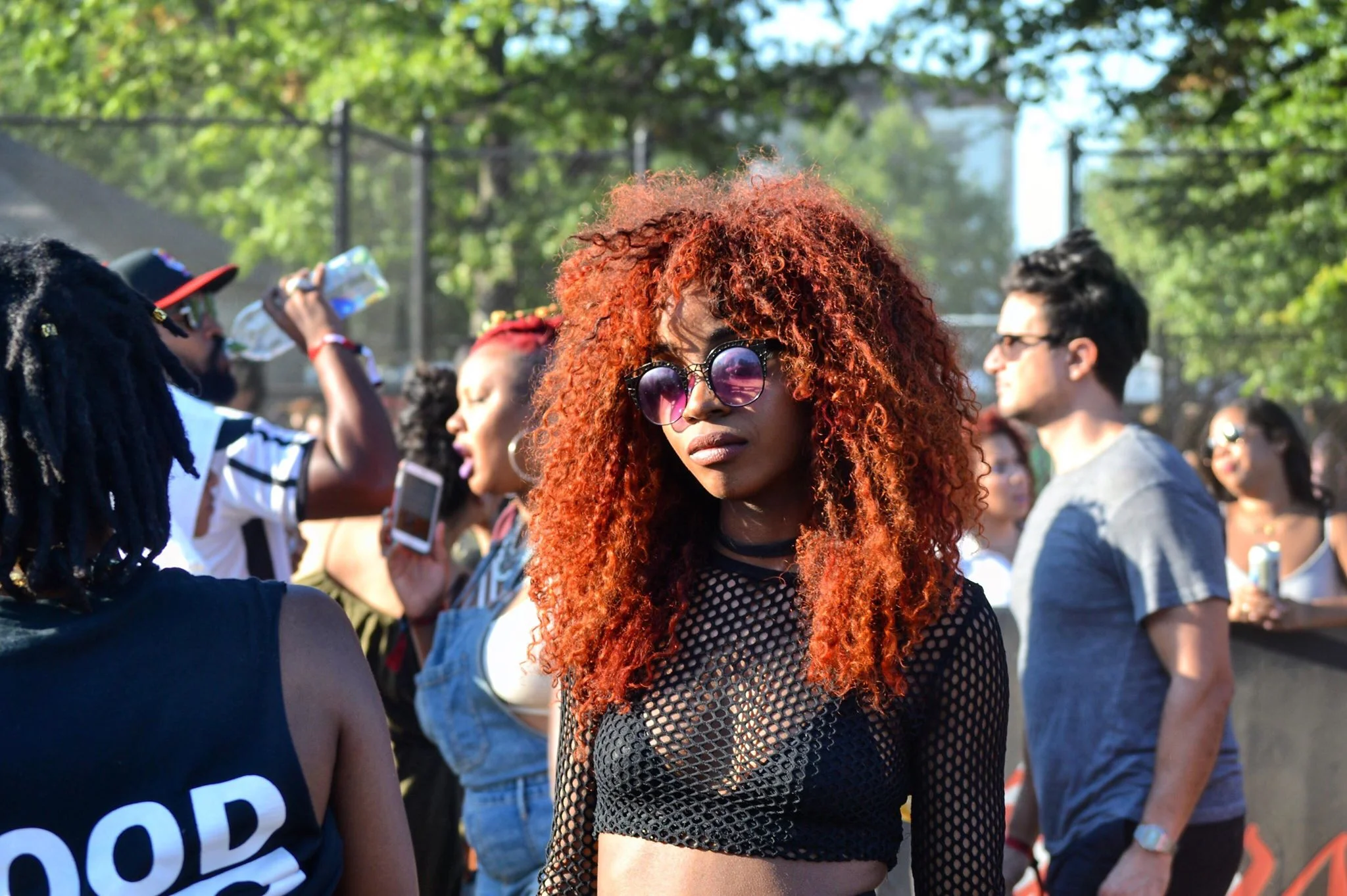Art by Isicera Dew
This is for the queer fat Black femmes.
As children, we learn that we never occupy just one, but all, of our identities. Not a fat girl or a black girl, but a fat black girl. In elementary school, when everyone began talking about crushes, relationships, and desirability, the perceived origin of my ugliness was always being a “fat black girl.” Years later, as a 20-year-old college student at the margins of multiple communities bounded by identity, I often think about the imagined communities I am apart of. Whether on social media, organizing spaces, or social events, what I've come to realize about the mainstream LGBT, the Black, and Fat positive communities is their dependency on the unpaid labor of fat and queer Black women and femmes.
To most, it is no secret that being fat, black, and a woman is considered the most undesirable a person can be. If you search “fat black girls” on twitter, the first tweets that come up are the following, “I only match with fat black girls on tinder..so sad” “Fat black girls on tinder eww” and “there's nothing but fat ugly black girls on tinder wtf i don't like ugly fat black girls.” And yet for those of us who use sites like tinder, we know that we are sexually and romantically desired, but because of the stigma, often in secrecy. Every time I make a new online dating profile, I receive hundreds of messages from people of all backgrounds, with sexual, romantic, and amicable inquiries. Fat, Black women are publicized as the symbol of what is undesirable while behind closed doors we are desired, fetishized and given all different types of attention.
While we navigate the paradox of being hyper-visible as sexualized, fetishized, and denigrated people, we are invisible when it comes to the performance of labor within our communities. Fat Black women, especially those who are queer and dark-skinned, are meant to perform specific roles within the mainstream fat, LGBT, and Black communities. We are meant to be a crying shoulder for our thin friends, comedic support, and the people cooking for large crowds, or the motivation for people who view us as “fierce and strong.” We are the Black superwomen who are meant to sustain our communities. We are the backbone of every community we are a part of.
This leads me to the paradoxes I am seeking to shed light on. How is it that we are invisible, hyper-visible, denigrated, and desired simultaneously? What does that mean for our humanity? To be black, a woman, and fat is to be placed into these specific roles of performing unpaid labor for our communities without being centered or uplifted in a transformative way by the people we share space with.
We, fat black queer women are viewed as the symbol of desire that is chaotic. Expected to be the backbone of each community without being viewed as the celebrated prototype of any given community.
This notion of “chaotic desire” is specific to queer black fat femmes because of the way we navigate through the world. As a pansexual, fat, black woman, I am viewed as a symbol of unchecked desire. In white-supremacist, capitalist, western societies, honorable people are those who are viewed as putting a check on their desire, in order to be a successful person within the hegemonic hierarchies that surveillance societies in the West have built. To be pansexual is to act on too much desire regarding bodies I am attracted to. To be fat is to not be able to give into the tyranny of slenderness and starve my body of nourishment in order to be a slimmer human. To be Black is to be viewed as subhuman in a way that we are perceived as having a lack of self control that other citizens have in order to be viewed as patriotic, hard-working or authentically American. An example of this would be the ways in which Black people are meant to abandon our cultural aesthetics as a means to assimilate into Western ideas of professionalism.
It is necessary that mainstream LGBT, Black, and Fat-positive communities begin to be critical of the ways in which Queer Fat Black Femmes are being treated within these spaces. To center Fat Black Queer Femmes in conversations regarding unpaid labor, desirability, and queerness is to bring nuance to many conversations that currently lack it.
No One Loves Us Like We Love Us
As Queer, Fat, Black femmes, we should continue to carve out safer spaces for ourselves outside of the mainstream communities so that we can continue to name these pains. We have been trained to keep silent on our suffering for too long.
We need community support to continue publishing!
Articles and artwork like these are only possible through your contributions. Please donate today to sustain the wellbeing of artists, writers, healers, and LGBTQ2IA+ people of color.
You can also support our team by picking up
a Rest for Resistance print zine.
Image Description:
A full body portrait of a fat black femme with violet hair and a red one piece holding overhead platforms from which the trees of their community grow. She's lit with dual spotlights that resemble wings against the darkness. She is underlined by the quote from Aly Thomas: "We are the backbone of every community we are a part of."
About Alexandra Thomas:
Aly is currently attending Brandeis University, where she majors in African and Afro-American Studies. She's passionate about educating people on fat acceptance and uplifting fat femmes.
[Image Description: A close-cropped portrait of a brown-skinned person with an open-mouthed smile. She has dark, curly hair, dark eyes, and is wearing hoop earrings and a bright pink top with narrow rows of black geometric designs.]










